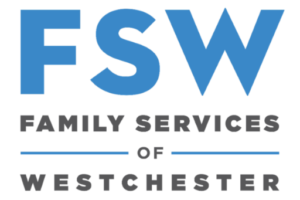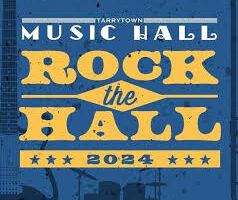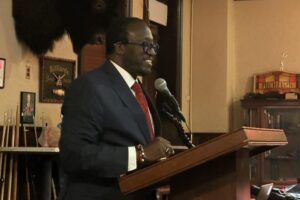Residents of Tarrytown, Sleepy Hollow and Irvington most likely will face either higher taxes or cuts in services in 2009. Or it could even be both.
Villages and school boards don’t adopt their budgets until the spring, and January is a very preliminary month to even make a prediction on such a topic.
"Normally, we wouldn’t even be talking about it yet, but it’s not a normal year," Tarrytown/Sleepy Hollow Schools Superintendent Dr.
 Howard Smith said in an interview last week. To that end, Smith gave a preliminary presentation to the Tarrytown/Sleepy Hollow Board of Education last Thursday, showing them what a status-quo budget, that continues to support all programs and services, would look like in terms of tax increases, as well as a contingency budget.
Howard Smith said in an interview last week. To that end, Smith gave a preliminary presentation to the Tarrytown/Sleepy Hollow Board of Education last Thursday, showing them what a status-quo budget, that continues to support all programs and services, would look like in terms of tax increases, as well as a contingency budget.
Smith said the status-quo would require a 10.4 percent increase in taxes, and explained that even if the district didn’t increase the school budget by a single dollar next year, there would still be a 3 percent increase in taxes based on preliminary estimates of revenue, including a projected $1 million decrease in state aid.
"Due to the potential tax implications of a status quo budget relative to the state of the economy, it has already been rejected as a starting point for this year’s budget process," Smith said.
Instead, Smith said he would propose establishing a contingency budget, which would still increase taxes by 6.5 percent (increase of 4.3 percent after factoring out the debt service impact). A contingency budget comes from a New York State formula for determining the maximum allowable budget increase that wouldn’t need approval from the public.
Smith said the contingency budget would be about $1.5 million below a normal budget, and would require changes in transportation services, a freeze in discretionary non-personnel spending, and some instructional staff reductions, which would increase class size and reduce the amount of electives.
"Our goal is to get this information out to the public now so we can get reactions and input prior to beginning our formal budget review process in March," Smith said, adding that residents should call, e-mail and share their opinions during the public comment portion of board meetings. He said public input would help determine whether or not the board would make further cuts.
In fact, leading officials from all three villages and both school districts told River Journal that our sour national economy – and specifically the expectation that they’d be receiving less revenue from sales and mortgage taxes – would negatively impact their budgets. And several of these officials said they were eager to submit this information to the public in order to receive the maximum amount of input before the tough decisions are made.
"In my 22 years of doing budgets here, I haven’t seen revenues go south like this," Tarrytown Village Administrator Michael Blau said, anticipating a $300,000 reduction in non-property tax revenues. Noting the customary annual salary increases for union employees as well as debt service taken on by the town, Blau said, "If nothing were to change, we would be looking at tax increases." He added that all options are on the table. "We are looking at everything, from soup to nuts."
Blau said the Village Board would take a look at fees for various permits and identify items where the village is not charging a fee when other Westchester towns charge one. He said he would recommend that Tarrytown develops a fee structure where it never charges below the average.
Meanwhile, Sleepy Hollow Village Administrator Anthony Giaccio said he had been given "marching orders" from the board to cut expenses. He said a couple of board members said they had wanted a zero percent tax increase, but Giaccio said such a goal could be out of their control.
"There’s been all kinds of discussion about how to cut expenses," Giaccio said. "We’ve been told nothing is off limits," he said, adding that discussions would include every department, including the court, library, recreation department, etc.
In Irvington, Larry Schopfer, the Village Administrator, said residents would face a tax increase. He said officials are already projecting a 2 percent decline in the tax base, which translates to a 2 percent increase in taxes. Schopfer said the board has a 2-4 percent tax increase target, but village officials are projecting the possible need for a 6 percent increase.
The Irvington School District, meanwhile, is looking for creative ways to cut expenses. Superintendent Dr. Kathleen Matusiak and Assistant Superintendent for Business Jim Reese discussed previous cuts to bus service which saved over $200,000, and said perhaps the district could hold a referendum vote to change the distance requirement for bus service this time around. They also discussed their efforts to leave certain positions vacant if someone retired, and they’ve mandated a cap on supplies and materials.
"We’ll try to avoid impacting the classroom as much as possible," Matusiak said. "A lot of things would be horrible if they ever ended up on the chopping block."
Matusiak also said she is proposing to the board a moratorium on new equipment, furniture and technology to get the district through this difficult economic climate. The Irvington School District is also set to renegotiate contracts with teachers and administrators before the current ones expire in June.
"I think the union doesn’t want to see a lot of staff cuts either," Reese said, possibly as a warning statement to union negotiators regarding the economic climate that the district faces.
The Irvington School District is putting together a hypothetical budget to show members of the Finance Committee what a zero percent tax increase would look like: "Evisceration" was the word Matusiak and Reese came up with. The Encarta Dictionary defines evisceration as the removal of an essential part of something, which would weaken it. These are the cold facts.







